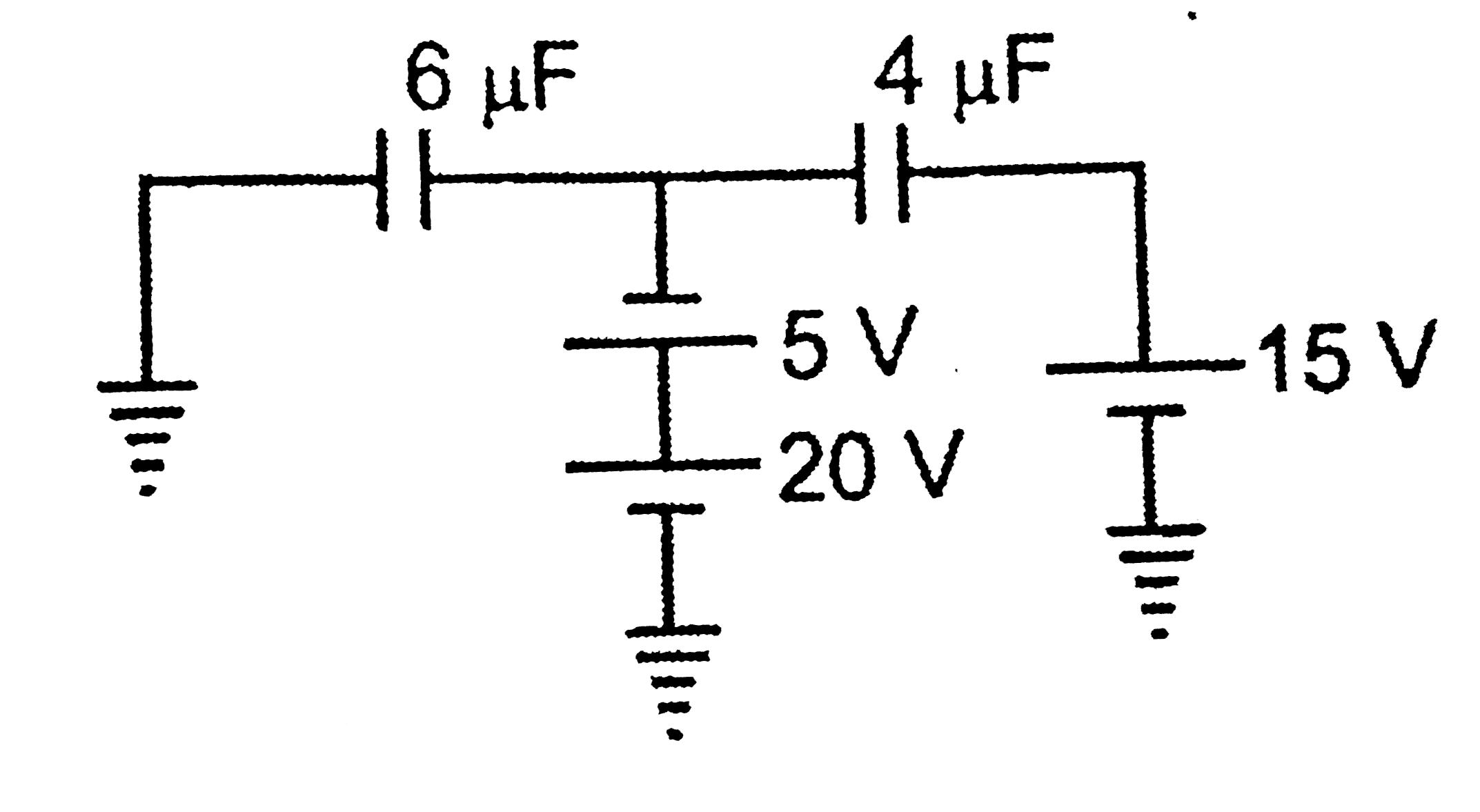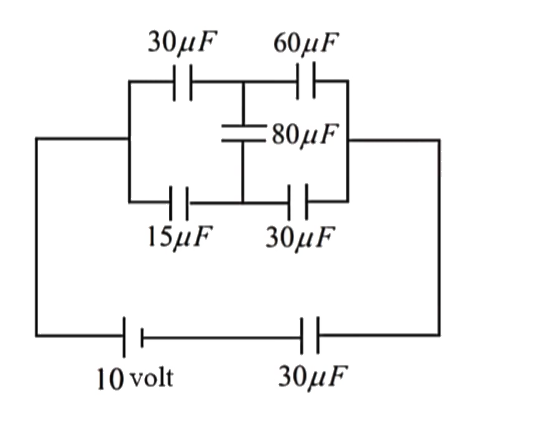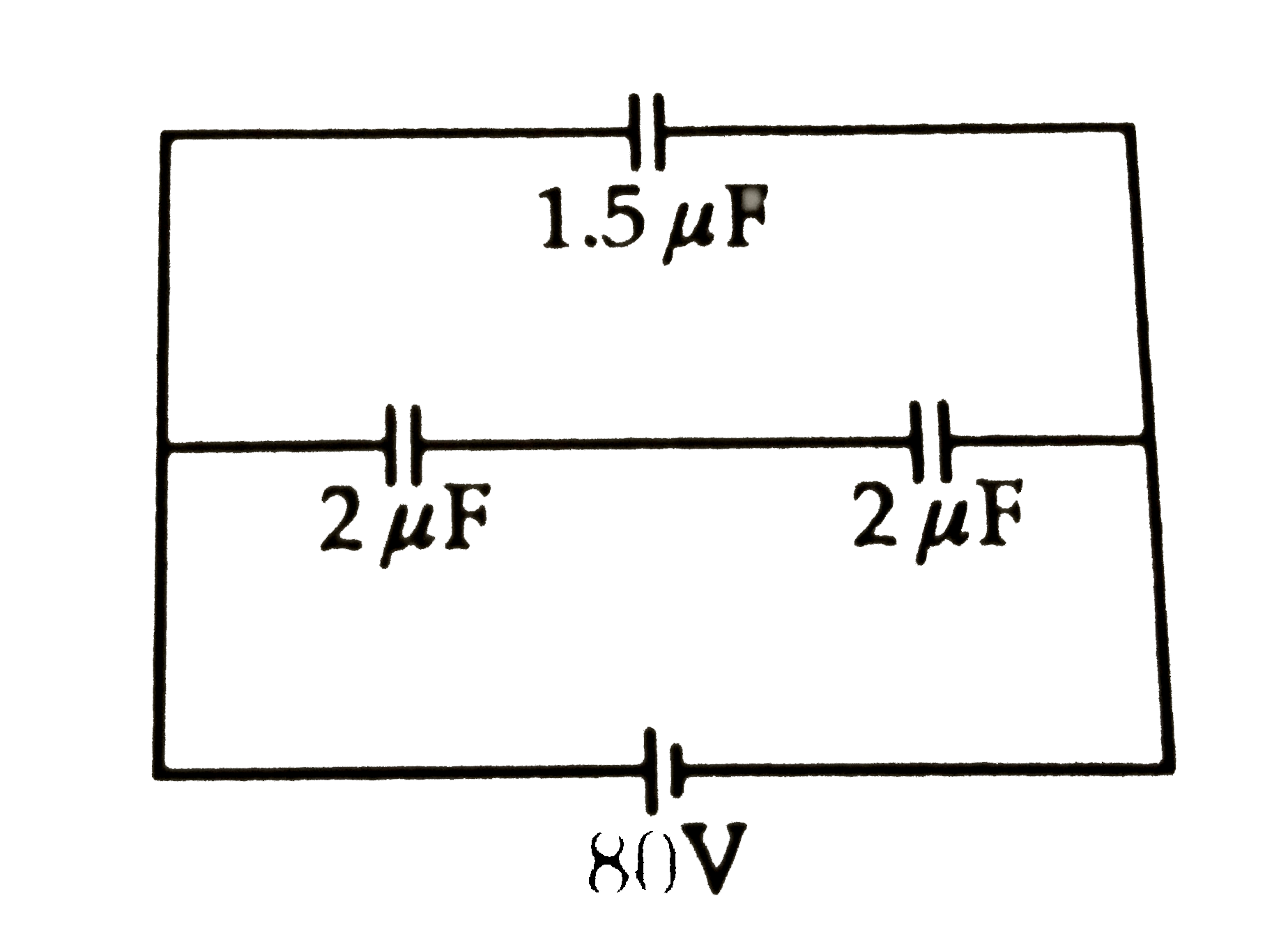A 100 μF capacitor is to have an energy content of 50 J to operate a flash bulb. The voltage required to charge the capacitor is
1000 V
2000 V
500 V
250 V
The correct Answer is:A
E=12CV2 ∴V2=2EC=2×50100×10−6=106
∴V=103=1000V
Topper's Solved these Questions
- BOOK - MARVEL PUBLICATIONCHAPTER - ELECTROSTATICSEXERCISE - TEST YOUR GRASP20videos
ELECTROSTATICS
- BOOK - MARVEL PUBLICATIONCHAPTER - ELECTRONS AND PHOTONS EXERCISE - TEST YOUR GRASP - 1715videos
ELECTRONS AND PHOTONS
- BOOK - MARVEL PUBLICATIONCHAPTER - GRAVITATION EXERCISE - TEST YOUR GRASP -220videos
GRAVITATION
Similar Questions
Knowledge Check
- Question 1 - Select One
A 100μF capacitor is to have an energy content of 50J in order to operate a flash lamp. The voltage required to charge the capacitor is
A500VB1000VC1500VD2000V - Question 2 - Select One
The charge on capacitor 4μF is
 A2μCB6μCC10μCD12μC
A2μCB6μCC10μCD12μC - Question 3 - Select One
For the arrangement shown in the figure, the charge on the 4μF capacitor is
 A90μCB60μCC36μCDZero
A90μCB60μCC36μCDZero
In the circuit shown below, the charge on the 60μF capacitor is
 View Solution
View SolutionA 100μF capacitor is charged to 100V. After the charging, battery is disconnected. The capacitor is then connected in parallel to another capacitor. The final voltage is 20V. Calculate cap the capacity of second capacitor.
View SolutionIf a 4μF capacitor is charged to 1 kV, then energy stored in the capacitor is
View SolutionTwo capacitors 2μFand4μF are connected in parallel. A third capacitor of 6μF capacity is connected in series. The combination is connected across a 12 V battery. The voltage across a 2μF capacitor is
 View Solution
View SolutionA 10μF capacitor is charged to a potential difference of 1000V. The terminals of the charged capacitor are disconnected from the power supply and connected to the terminals of an uncharged 6μF capacitor. What is the final potential difference across each capacitor ?
View Solution


